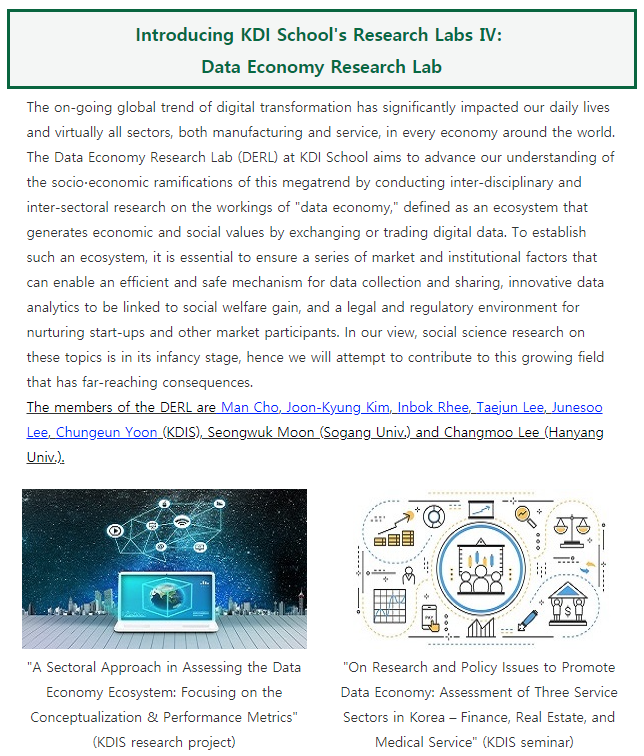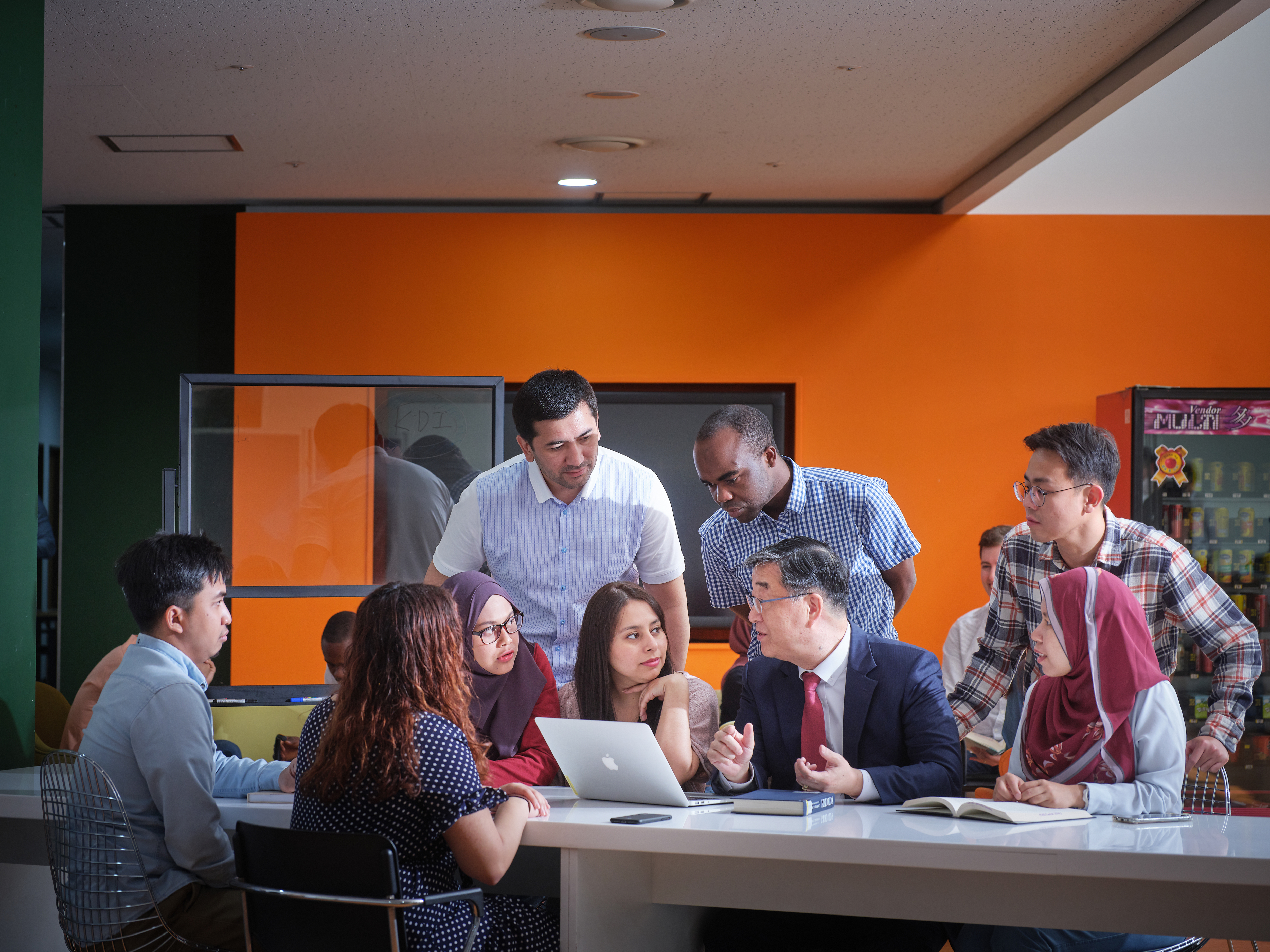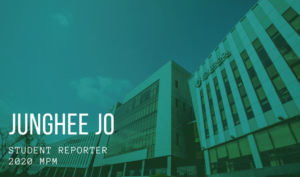
KDIS Research Labs Q&A: Data Economy Lab (DER Lab)
- Date 2021-07-21 08:55
- CategoryResearch and Education
- Hit1524
 Data Economy Lab (DER Lab), Source: KDI School Impact Note l January 2021
Data Economy Lab (DER Lab), Source: KDI School Impact Note l January 2021
Q) First, please introduce your lab and research field. (Could you please introduce your research lab to us? What projects are you initiating as of today and in the past? Who are the members in your research lab?)
Prof. Cho, Man: Our lab is a data economic research lab in English, and you can express it as a data-based research lab. But, if you tell me what triggered my interest in the topic of data economy, I have been teaching Fintech course since 2018. I was giving a lecture on finance, and I''ve been researching smart cities from research assignments. So, the key issue was how to use smart cities or use financial technologies and a digital platform well. As a conclusion, I started a lab with professors at our graduate school.
Speaking of the concept of the data economy, the data economy is an economy of scale. If the economy of scale increases, then the productivity increases. The data should be interpreted that way. Collecting, sharing, and utilizing high-quality data increases productivity. In the past 10 years, advanced countries around the world are making efforts to manage data economy well as a strategy for national development. The US and China are representative, and many global IT companies have emerged and are leading the growth, as is the UK, EU and Japan.
In 2019, Korea passed various laws as a national development strategy and made institutional laws. The significance of this lab was that we are thinking about contributing to the national policy by doing research and creating a lab. We were planning to think about what kind of situation and improvement tasks are related to the data economy. Because it is a complex and large concept of the data economy, in December of last year, we held a seminar about data, real estate, medical care. And, related research is in progress. Our lab''s activities are researching appropriate policy issues that are focusing on these three areas. Our lab members are Professor Jun-Kyung Kim, Professor Tae-Jun Lee, Professor In-Bok Rhee, and Professor Chun-Geun Yoon. We are investigating the current state of the data economy in financial real estate and medical services. Specifically, our research project is titled “Sectoral approach in analyzing data economy: focusing on finance, medical service and real estate in Korea.”
Q) What is the most memorable thing in your life in Data Economy Research?
Prof. Cho, Man: The data economy is a situation that has a great impact on the entire Korean economy. If we carry out research projects like we previous did, we divide social sciences in social sciences and natural sciences. However, we are conducting research in national science although we are in the field of social science. I think that it is meaningful to see policy tasks by combining social sciences and natural sciences, and personally, it is an opportunity to learn a lot about situations that I did not know and personally learn a lot from doing research projects with medical professors. I think it is meaningful to do research by combining the three parts, away from research that is done only in a specific field.
Q) Could you please share the story behind your Ph.D. experience or professional training?
Prof. Cho, Man: The purpose of doing our master''s and doctoral studies at the graduate school is to personally have the beliefs and philosophy of talented people in a specific policy field. Students should not be swayed easily. The goal of the graduate school is not to be easily swayed when receiving predictions that are contrary to our beliefs, and philosophy puts great emphasis on analytical skills in our curriculum. Statistics, microeconomics, and those related to analytical skill are important, and a big role is to construct and analyze data appropriately. So, you can make a belief in the field of interest with some evidence, and in the process of persuasion. I think the data based argument is a very important task. As for the data economy, whether making good evidence and reflecting it in policy is one of the important parts of the data economy. It is to have a firm philosophy after honing your perception with data driven evidence. Whether the data economy can be used appropriately in such a part is also linked to the curriculum of our school.

Q) Looking back from your position as a professor, what are some of the things you think you did best and regret the most as a student?
Prof. Cho, Man: To anticipate the most beneficial thing, in graduate school, you have to take all the courses and do a thesis or SRP. We are investing heavily in schools. In terms of opportunity cost, it is an investment for more than one year, and I think it is very important to make something of your own in this process, not to pursue only easy things. It is very important to have a challenging spirit. When writing a thesis or something, it is important to impose a difficult task. It was a very difficult process when I received my doctoral thesis in the 1980s, and the professor I met in the hallway often told me that although it was difficult, keep pounding, the more you challenge, the more you learn and it becomes yours. If you only pursue easy path, there will be little left afterwards. The topic of data economy is also a very difficult and complex topic. You are taking on a challenge from both inside and outside. So, let''s set it up as a challenging part and do pounding. In that sense, we are operating the lab. It is also a big investment for students in our school. Having a no pain, no gain, a challenging attitude that can be useful to them in a difficult process, is challenging about a difficult topic or subject as well as writing a thesis and having a challenging mind. Isn’t it preferable?
Q) Do you have any last words you would like to say to the KDI School students?
Prof. Cho, Man: Take a challenging stance. And keep pounding.

Related News
-
Research and Education28 days ago
Republic of Korea Economic Bulletin, April 2024#KDI #Economic #KDISCHOOL #kdischool #Economic Bulletin #Research
-
Research and Education56 days ago
Republic of Korea Economic Bulletin, March 2024#KDI #Economic #KDISCHOOL #kdischool #Economic Bulletin #Research
-
Research and Education88 days ago
Republic of Korea Economic Bulletin, February 2024#KDI #Economic #KDISCHOOL #kdischool #Economic Bulletin #Research
